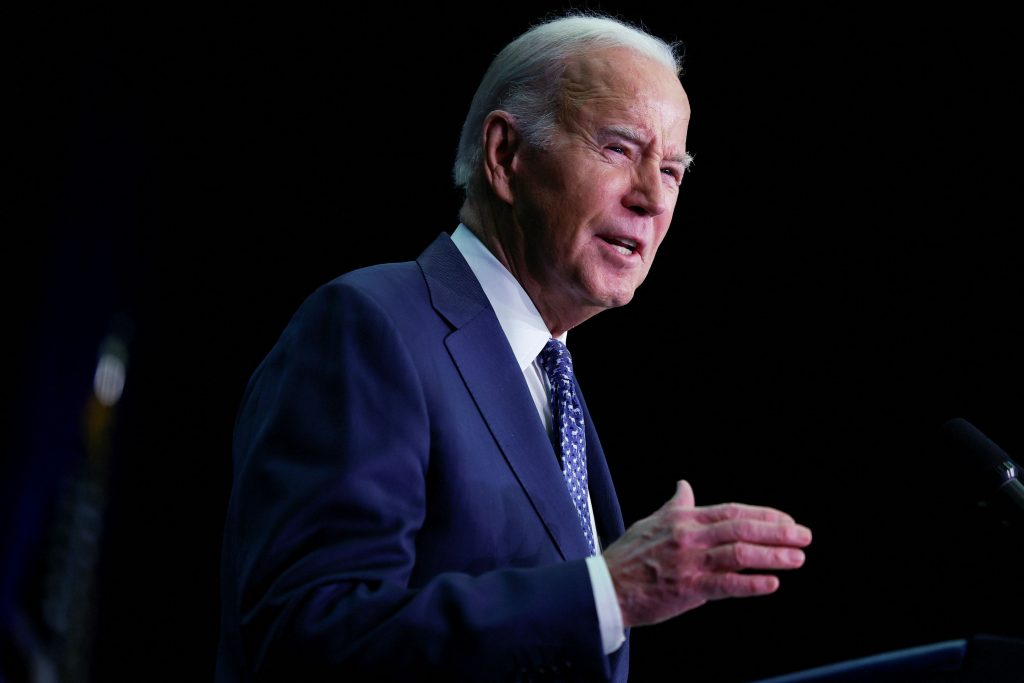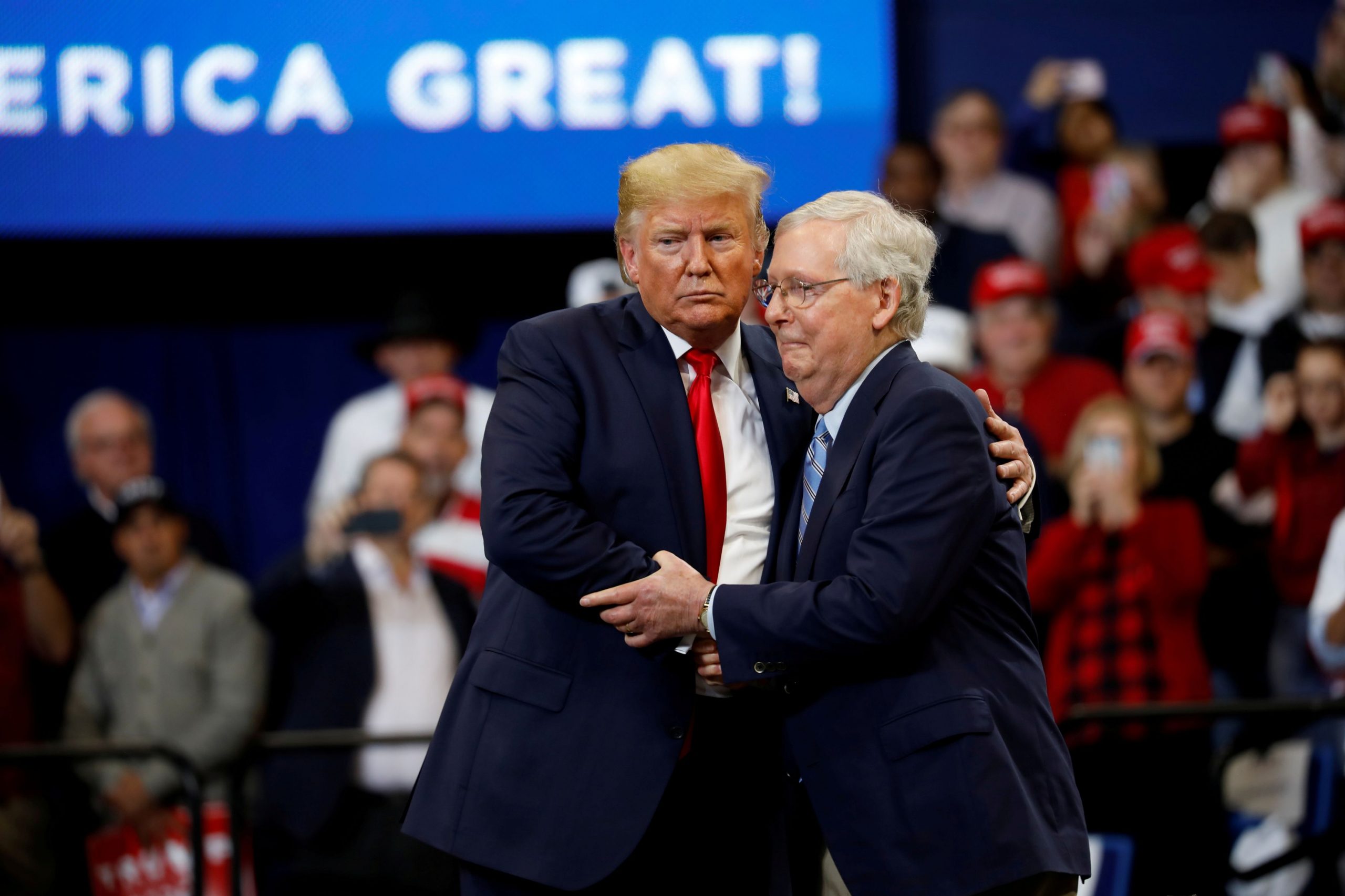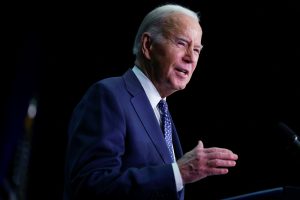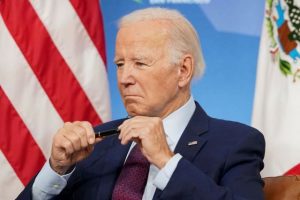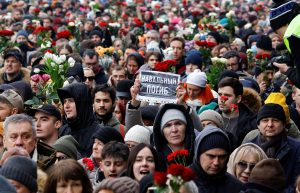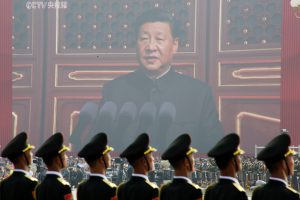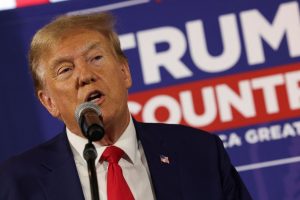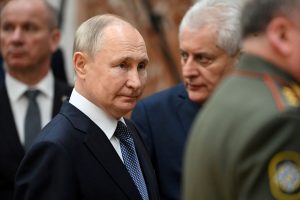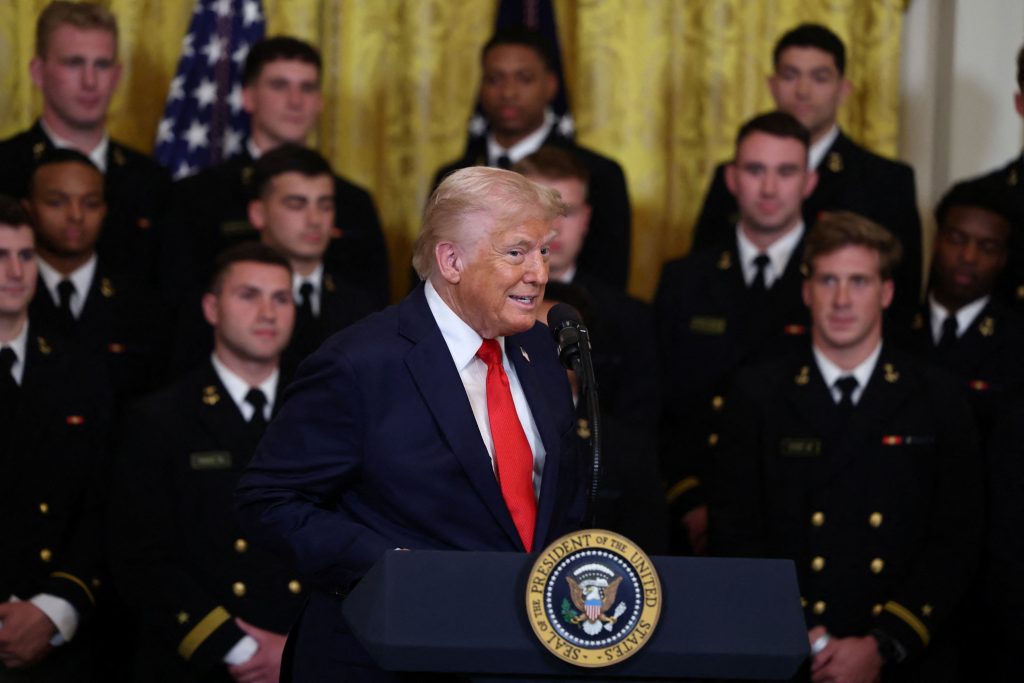It’s a golden age for politicians in their golden years—and not just in the U.S.
A decade ago, just one of the world’s 10 most populous countries, India, had a leader who was 70 or older. Today, eight of them do, putting at least half the global population in the hands of people in their 70s and 80s. The two countries that don’t—Indonesia and Pakistan—are also poised to have septuagenarians at the helm after elections this month.
The corridors of power looked significantly less gray in February 2014. Barack Obama , at the relatively spry age of 52, occupied the White House. China’s Xi Jinping and Russia’s Vladimir Putin were in their early 60s. Enrique Peña Nieto in Mexico was a youthful 47.
What’s behind the boom in boomer presidents and prime ministers? A multitude of reasons.
Autocrats have deepened their grip on power. Xi began a norm-breaking third term as Communist Party chief in 2022, when he was 69 years old. Putin, who rose to the pinnacle of authority in Russia when he was 47, remains there nearly 25 years later, sweeping away resistance to his rule. One of his staunchest challengers, Alexei Navalny , died in prison earlier this month at 47.
Barriers to entry have also grown in democracies, where winning elections requires ever-larger pots of money, giving established politicians with well-oiled donor networks the upper hand. India’s Narendra Modi is widely expected to cruise to a third term this year at 73. Sheikh Hasina , 76, won an unprecedented fifth term as prime minister of Bangladesh in January and, after cracking down on the opposition, is in her 16th consecutive year in office.
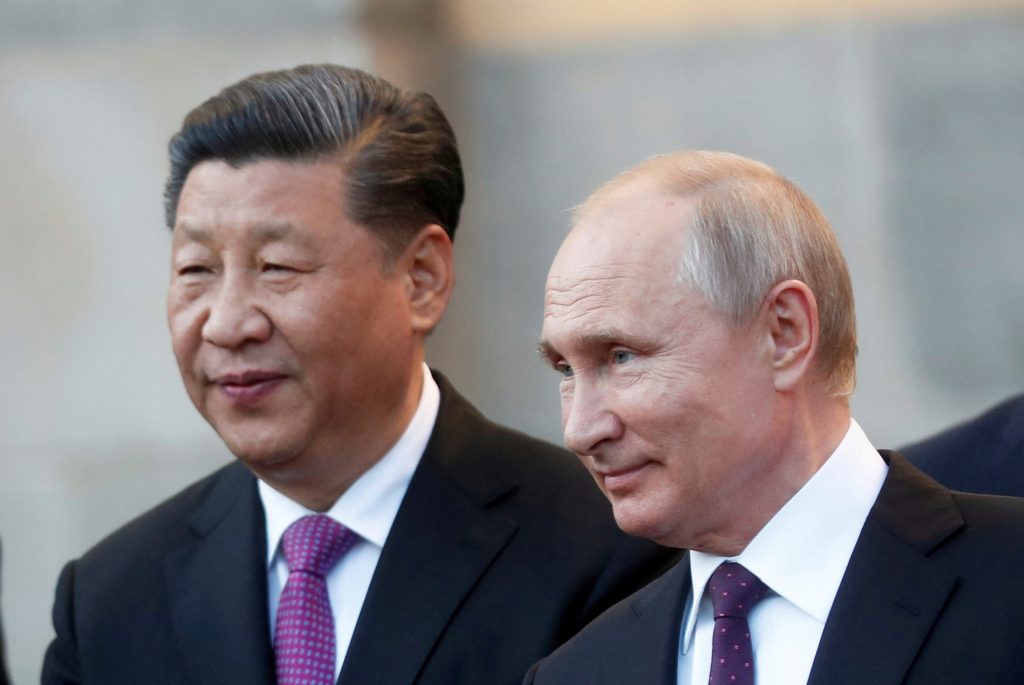
Chinese President Xi Jinping and Russian President Vladimir Putin attend a presentation of a Haval F7 SUV produced at the Haval car plant located in Russian Tula region, at the Kremlin in Moscow, Russia, June 5, 2019. Maxim Shipenkov
In mid-February, Indonesia catapulted a 72-year-old member of the entrenched political elite to the top job. He is set to succeed President Joko Widodo , the former furniture maker and small-city mayor whose landmark 2014 election, when he was 53, infused the world’s third-largest democracy with new hope.
“Across the world there are many places that have high barriers to entry for new parties and for new politicians, whether they’re democratic or not,” said Ben Bland, director of the Asia-Pacific program at Chatham House, a U.K. think tank. “It’s pretty depressing seeing so few younger leaders and fresh ideas emerge everywhere given the scale of challenges we’re facing and the pace at which our world is changing.”
In America, the question of “How old is too old?” is looming over the presidential election . Most voters say they would prefer a president below 70 years of age, according to a 2023 survey by the Pew Research Center. Many are concerned that poor health could be a stumbling block for 81-year-old President Biden or 77-year-old Donald Trump.
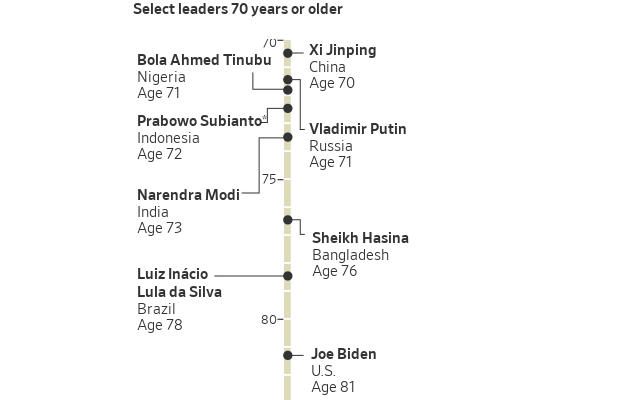
“If we think of the two major parties, they’ve had several years to make sure that they do not end up in this situation and still they’re not able to come up with leaders that are signaling youth to voters,” said Aksel Sundström, an associate professor of political science at the University of Gothenburg in Sweden.
Flubs and fumbles in Washington have made headlines. Biden recently referred to Egyptian President Abdel Fattah Al Sisi as the leader of Mexico. Trump confused his Republican rival Nikki Haley with former House Speaker Nancy Pelosi . Republican Senate Minority Leader Mitch McConnell , who turned 82 this month, froze in front of cameras twice last summer . His office said he felt lightheaded, and McConnell and his allies have vouched for his health. On Wednesday, McConnell said he would step down from his leadership role in November.
Older politicians have resisted calls to step aside, and incumbency advantages mean voters rarely force them to.
The average age of House members at the beginning of the current term was 57.9 years old and that of senators was 64. Both were down slightly from the averages of the previous term beginning in 2021—the oldest Congress on record—but going back further, the average age of a House representative has increased by four years since 2003. Senators are, on average, 4.5 years older than the members were 20 years ago.
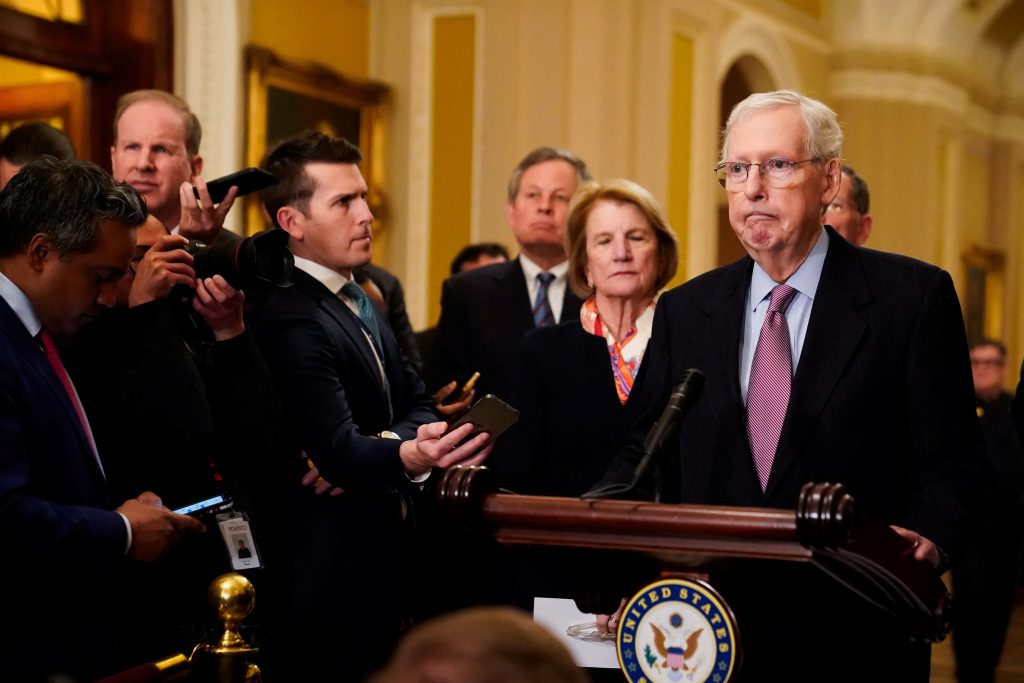
U.S. Senate Minority Leader Mitch McConnell (R-KY) pauses as he speaks to reporters following a meeting at the White House and the Senate Republicans weekly policy lunch at the U.S. Capitol in Washington, U.S., February 27, 2024. REUTERS/Elizabeth Frantz
The trend has led to proposals for maximum age limits for federal office. Republican presidential candidate Haley has called for compulsory mental competency tests for politicians over 75. Last year, Republican Rep. John James from Michigan proposed a constitutional amendment to bar anyone who would turn 75 during their term from running for Congress or president, but it wasn’t taken up and the effort appeared largely symbolic.
Under America’s two-party system, ambitious young people typically need to start from the bottom in one of the two established camps. That makes it more difficult to have breakthrough leaders such as France’s Emmanuel Macron , who started his own political party, became the country’s youngest president at 39 and this year appointed an even younger prime minister , age 34.
More broadly, Europe, whose population is older than the U.S., is bucking the trend of senior leaders. Its parliamentary democracies allow more room for younger politicians to find their feet, like Italy’s right-wing prime minister , Giorgia Meloni , who became her country’s first female leader in 2022 when she was 45. President Volodymyr Zelensky , leading Ukraine’s war effort , is 46.
Older leaders cast their advanced age as an asset at a time when the two wars in Ukraine and Gaza and great-power rivalry between the U.S. and China are changing the world order. The five-dimensional chess of world diplomacy needs experience, their supporters argue.
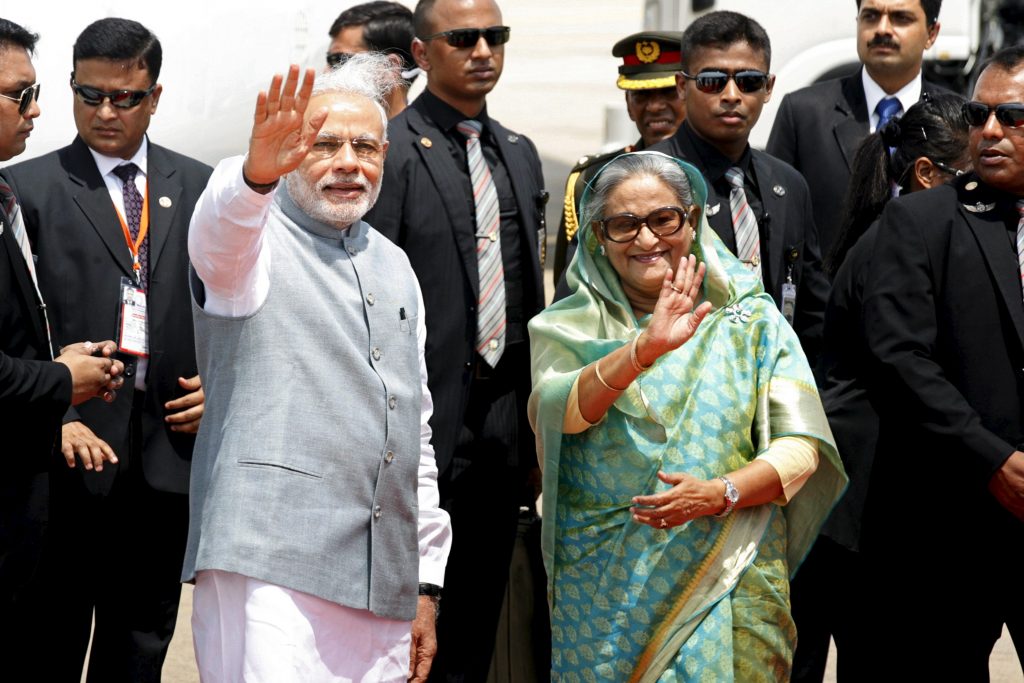
India’s Prime Minister Narendra Modi waves with Bangladesh’s Prime Minister Sheikh Hasina at Shahjalal International Airport in Dhaka June 6, 2015. REUTERS/Rafiqur Rahman
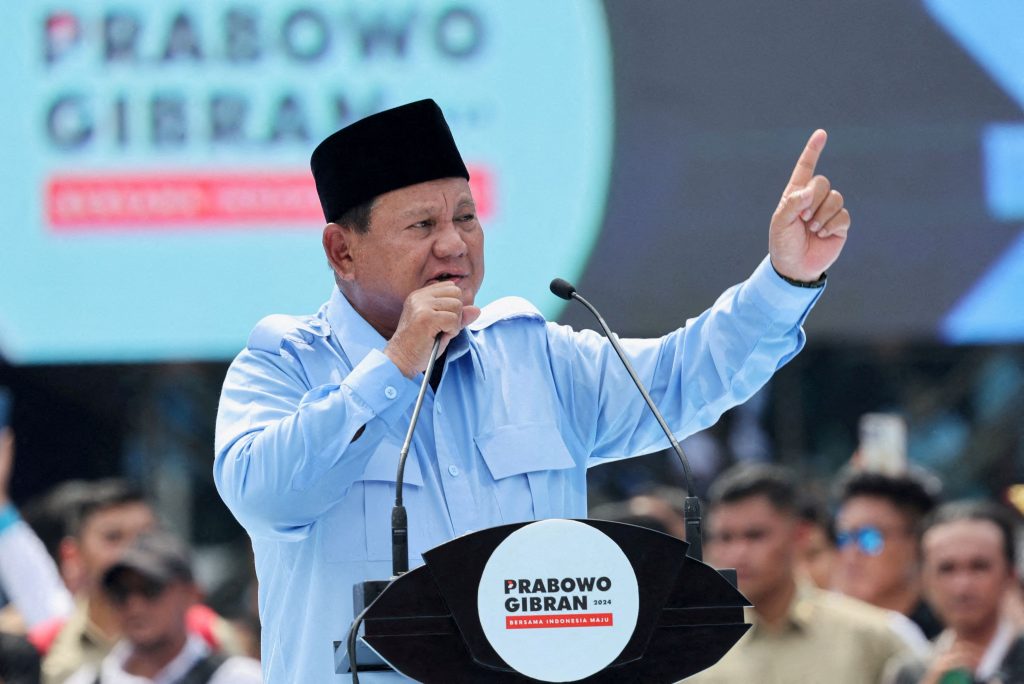
Indonesia’s Defence Minister and presidential candidate Prabowo Subianto during a campaign rally in Jakarta, Indonesia February 10, 2024. REUTERS/Kim Kyung-Hoon
On the flip side, many people question if presidents and prime ministers of an older generation can lead a 21st-century world being rapidly redefined by artificial intelligence and climate change.
Political scientists worry young people will disengage from politics if they feel they are stuck with politicians of their grandparents’ generation. Sundström, the political science professor, says the risk is a “cycle of alienation,” with older candidates causing youth voter turnout to decline, in turn giving politicians little incentive to focus on the concerns of the young.
Research from Japan and Germany shows that younger municipal leaders tend to direct more spending toward issues that affect the young. Charles McClean, a postdoctoral associate at Yale University, found, for instance, that Japanese municipalities with mayors under 50 were more likely to funnel money toward the problem of long wait lists at public daycare centers.
“There are very few young people in office,” he said of Japan. “What happens when you do elect a young person? When you bring more young people into government I find, yes, they are tackling these underinvested areas, especially child care.”
But in many parts of the world, septuagenarians are leading delicate conversations with the youth about topics like the long-term impact of global warming or the need for more babies. “Now is as good a time as any for young couples to add a ‘little dragon’ to your family,” said Singapore Prime Minister Lee Hsien Loong , 72, in a recent Lunar New Year address.
He noted that many young people today have different priorities, like careers and spending quality time with their partners, but warned that it starts getting harder to conceive a child with each passing year. Lee intends to step down this year and pass the baton to someone two decades younger. If it weren’t for Covid-19 disruptions, he has said, he would have resigned before 70.
Some older politicians are trying to bridge the age divide. Biden, born during World War II, joined TikTok this month with a video about the Super Bowl captioned “lol hey guys.” Prabowo Subianto , the 72-year-old former general who won in Indonesia’s mid-February presidential elections, cuddled his cat on Instagram and broke into jigs on the campaign trail that went viral.
Sen. Bernie Sanders , 82, and former U.K. Labour Party leader Jeremy Corbyn , 74, are influential figures among progressive youth, gaining legitimacy for being long-term standard-bearers of the left.
Young people should buckle up for more boomer leaders, said Kevin Munger, assistant professor of political science at Pennsylvania State University. “It’s going to change when they age out of politics in 10 to 15 years,” he said, “but really not before then.”
Write to Jon Emont at jonathan.emont@wsj.com
